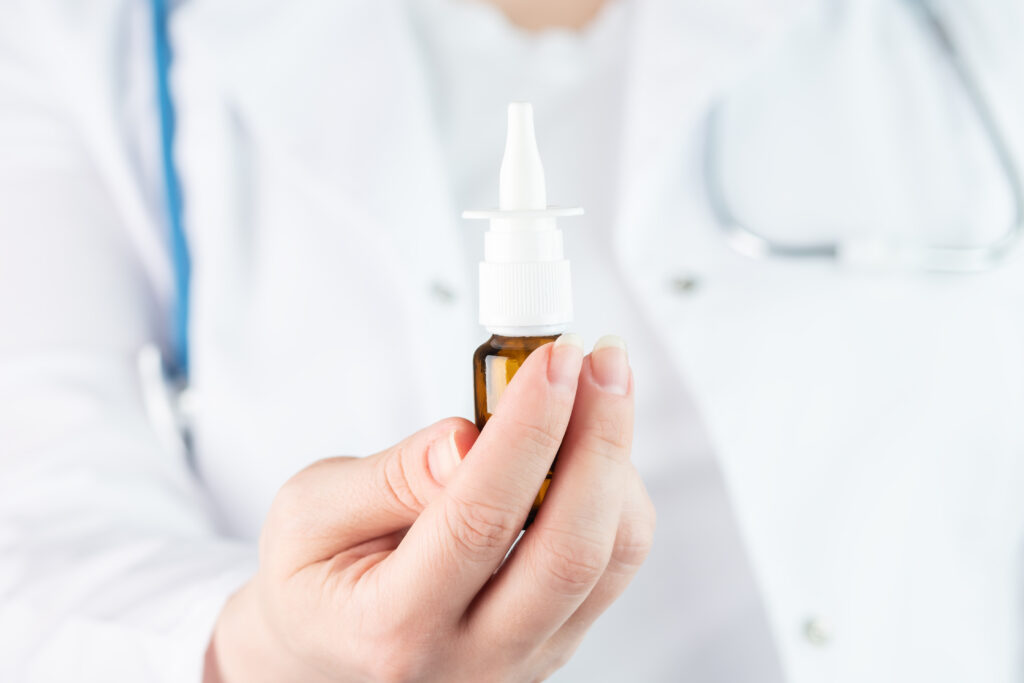Sinus safe NOT lung safe.

Using your nasal spray in a lung nebulizer for mold-related lung issues? Hold up! I’m Dr. Jill Crista, author of Break the Mold, and I’m here with a crucial PSA: what’s safe for your sinuses isn’t always safe for your lungs. Let’s dive in and keep your lungs happy and healthy.
Why Sinuses and Lungs Are Different
Things that you can put in your sinuses you can’t necessarily put in your lungs. Here’s why:
- Tough Sinuses: Sinuses are very hardy tissue, like the top of your gut, designed to handle larger droplets from nasal sprays or Neti pots.
- Tender Lungs: Lungs are very, very, tender tissue, easily irritated by substances not meant for inhalation.
- Droplet Size Matters: Nasal sprays produce large droplets that stay in the sinuses, while nebulizers create tiny droplets that reach deep into the lungs, risking harm.
The Danger of Nebulizing Nasal Products
I can’t stress this enough. Do not use things made for nasal application in a respiratory nebulizer for the lungs. Here’s the risk:
- Lung Damage: An example is vaping oils and resins that hadn’t been tested safe for lungs were causing the lung damage. Nasal products may contain ingredients like oils that irritate lungs.
- Mold Misstep: Using sinus sprays for suspected lung mold can add to the lung stress, worsening symptoms.
- Real-World Impact: With environmental stressors like mold and pollutants, lungs need protection, not added irritation.
Safe Ways to Support Your Sinuses
Use things for sinuses for the nose and the sinuses. Here’s how to care for your sinuses safely:
- Nasal Sprays: Use products designed for nasal atomizers or sprays, check out nasal sprays I recommend in my store.
- Neti Pots: Rinse sinuses with saline to clear mold spores without lung risk.
- Steam Inhalation: Breathe herbal steams with a towel over a bowl of steeped herbs to soothe sinuses.
Tips for Lung Health
Work with a doctor and a talented compounding pharmacist to make things that are safe to go into your lungs. Here’s how to protect your lungs:
- Consult Experts: Use the guidance of a mold-literate doctor.
- Avoid DIY Nebulizing: Skip nasal products in lung nebulizers to prevent irritation.
- Check Your Home: Test for mold to reduce lung stressors.
- Breathe Mindfully: Practice diaphragmatic breathing to boost lung oxygen without risky treatments.
You’re Ready to Breathe Easy!
Sinus sprays are great for your nose but can harm your lungs if nebulized. Keep nasal-safe products in the nose, and work with a mold-literate doctor for lung concerns. Now you are all good, keep breathing easy! Save this guide and share it with someone using nasal treatments.
Join Dr. Crista’s newsletter for more mold recovery tips.
Disclaimer This content is health information and not intended as personal medical advice. Viewing will not establish a doctor-patient relationship. It is not intended to diagnose, treat, cure, or prevent any disease or medical condition. The information discussed is not intended to replace the advice of your healthcare provider. Reliance on information provided by Dr. Jill Crista, employees, or others appearing at the invitation of Dr. Crista is solely at your own risk.
